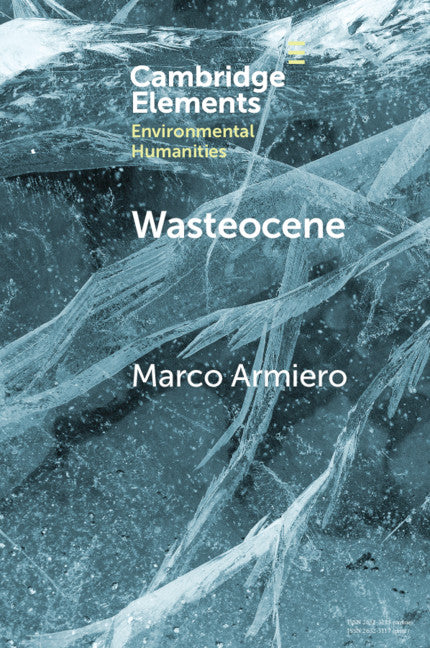Freshly Printed - allow 8 days lead
Couldn't load pickup availability
Wasteocene
Stories from the Global Dump
From Naples to Agbogbloshie, from imaginary futures to toxic legacies, this Element explores the Wasteocene and how to dismantle it.
Marco Armiero (Author)
9781108826747, Cambridge University Press
Paperback / softback, published 20 May 2021
75 pages
22.8 x 15 x 0.5 cm, 0.13 kg
'Armiero's book contributes to the understanding of the processes, protagonists, economic and social transformations as well as the exploitative forces behind Wasteocene logic … The author touches upon a highly relevant and urgent issue that too often remains overlooked, and for that reason the reviewer looks forward to the potential debate and the further research that this book may provoke.' Journal of Ecohumanism
Humans may live in the Anthropocene, but this does not affect all in the same way. How would the Anthropocene look if, instead of searching its traces in the geosphere, researchers would look for them in the organosphere, in the ecologies of humans in their entanglements with the environment? Looking at this embodied stratigraphy of power and toxicity, more than the Anthropocene, we will discover the Wasteocene. The imposition of wasting relationships on subaltern human and more-than-human communities implies the construction of toxic ecologies made of contaminating substances and narratives. While official accounts have systematically erased any trace of those wasting relationships, another kind of narrative has been written in flesh, blood, and cells. Traveling between Naples (Italy) and Agbogbloshie (Ghana), science fiction and epidemic outbreaks, this Element will take the readers into the bowels of the Wasteocene, but it will also indicate the commoning practices which are dismantling it.
1. Introduction
2. From the Anthropocene to the Wasteocene
3. Wasteocene Stories
4. The Wasteocene at the microscope
5. Sabotaging the Wasteocene
6. Conclusion.
Subject Areas: Social impact of environmental issues [RNT], Environmentalist thought & ideology [RNA], Sociology & anthropology [JH], Society & culture: general [JF], Society & social sciences [J]


